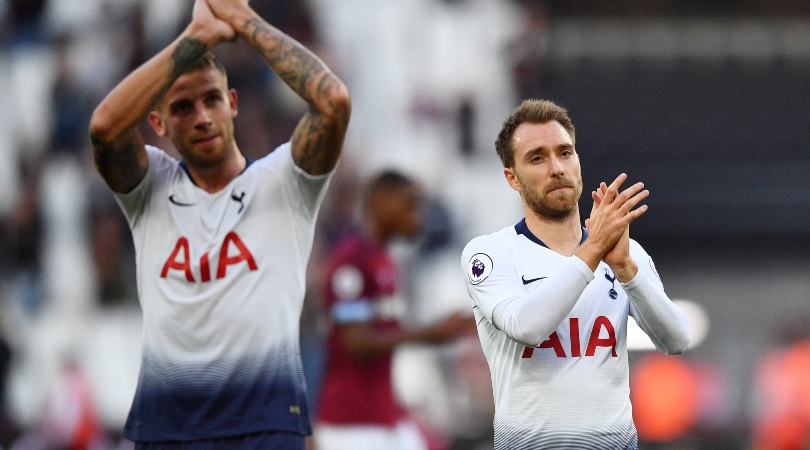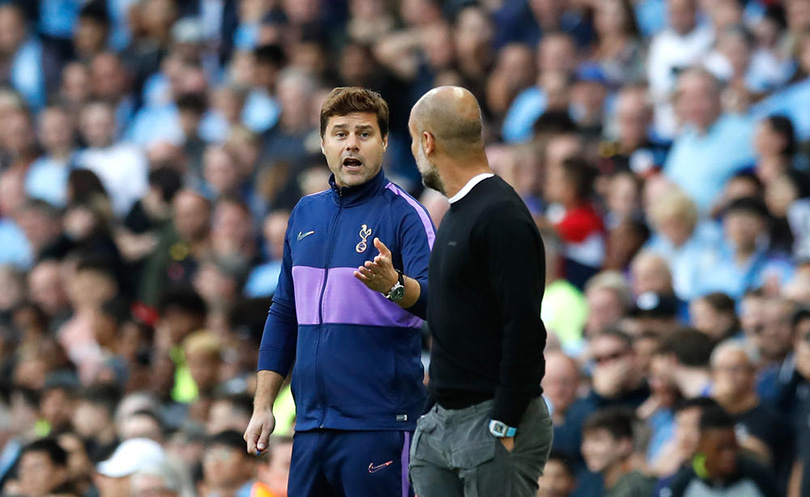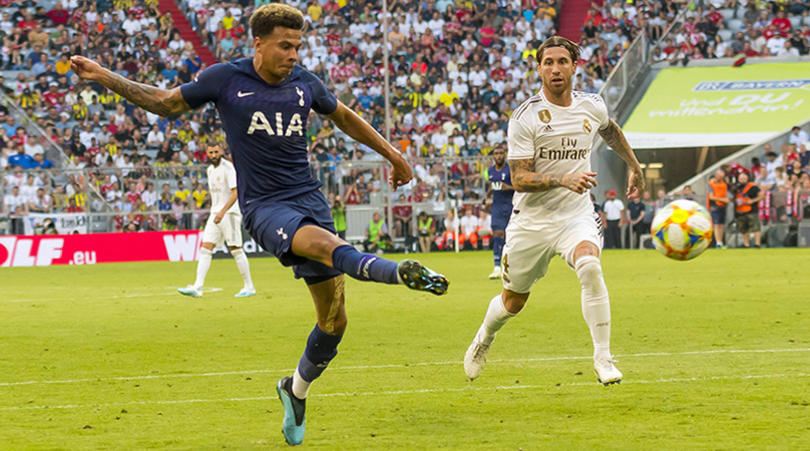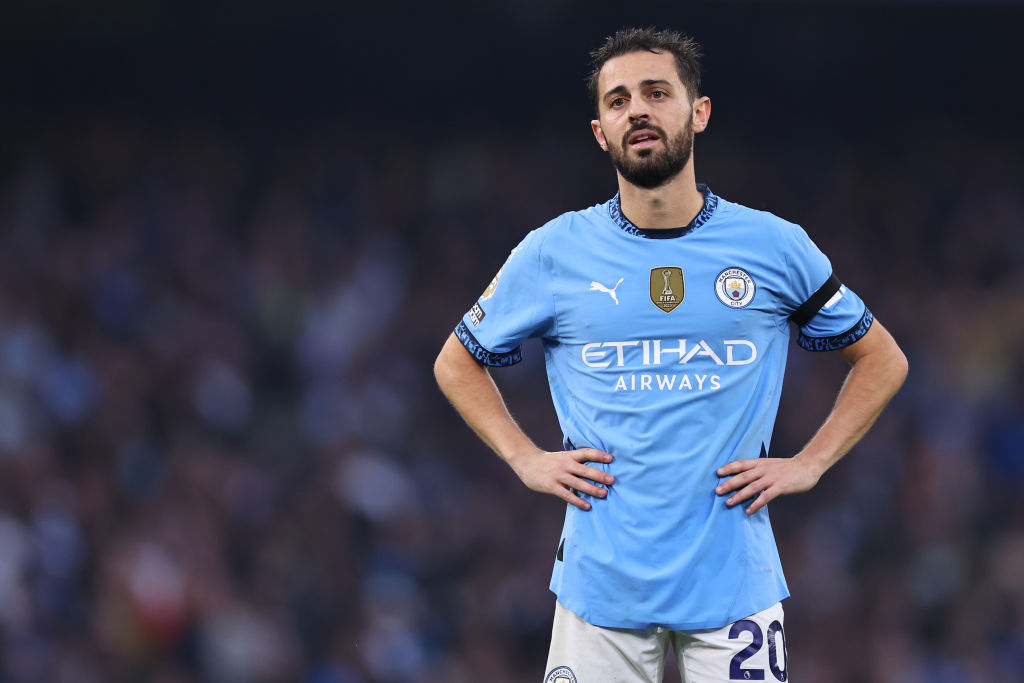Why ‘Levynomics’ might have finally stopped working for Tottenham Hotspur
The contract situations of Christian Eriksen, Toby Alderweireld and Jan Vertonghen leave Spurs facing unusual failure in the transfer market

It used to be Daniel Levy’s favourite time of the year. The Tottenham chairman made his reputation at the end of August, his annual displays of brinkmanship forging a status as one of Europe’s most feared negotiators. He held his nerve; he even, technically, held on to Gareth Bale until September and then secured a world-record fee.
But the end of August was when Levy sold Luka Modric and Rafael van der Vaart and Peter Crouch; when he brought in useful funds for unwanted players like Wilson Palacios and Zeki Fryers; when he made key signings such as Son Heung-min, Hugo Lloris and Christian Eriksen.
The end of August, too, is when he could lose the Dane – but now Levy can only be a seller, not a buyer. His own window of opportunity is closing. No wonder, therefore, that Mauricio Pochettino claims Levy realises he and other Premier League chairmen were wrong to vote in a system whereby the English transfer window closes before its European counterpart.
But that's not the reason why Levynomics could be breaking down. Eriksen is. Or he's part of it, anyway. Unless the playmaker leaves in the next 10 days, Spurs could lose him for free next summer. Go back to the start of the summer and there were suggestions that the club had placed a nine-figure price tag on his head. Levy, the savviest salesman of all, might bank £100 million – if not more – from Real Madrid or Manchester United. A £13 million signing could go down as perhaps his greatest bit of business.
But not now – that yield is disappearing. Tottenham perhaps miscalculated and priced Eriksen out of the market. He had a value on the balance sheet, but it may never be transferred to the bank account – and if it is, it will be for a cut-price sum. Nor is he an anomaly.
Levy was ahead of the curve in many respects. He helped pioneer the £50 million full-back when selling Kyle Walker to Manchester City. But if it looked like a new market for Tottenham to exploit, given Pochettino’s capacity to improve defenders, Walker is now a one-off. The notion that the rest of a fine back four could produce another £150 million has disappeared. Almost annual attempts to sell Danny Rose have failed. Toby Alderweireld, who may have commanded a £50 million fee last summer and had a £25 million release clause this year, could join Eriksen among next summer’s free transfers; another asset written off. There could be a third, too, with Jan Vertonghen’s deal up then. He never promised to produce such a profit but it would be un-Levylike to lose such a high-class player without considerable compensation in the form of a fee.

Eriksen and Alderweireld, in particular, outsmarted Levy by learning the laws of Levynomics. The Tottenham chairman’s model has been based on protecting players’ transfer value by forever extending their contracts, giving them incremental improvements in salary. The Ajax old boys have taken control of their futures by rejecting new deals, costing themselves now, when each remains drastically underpaid but able to negotiate bigger deals next. Their gambles may yet backfire, but for now they have called Levy’s bluff.
Get FourFourTwo Newsletter
The best features, fun and footballing quizzes, straight to your inbox every week.
And part of Levynomics was based on selling players before their value declined. Those of Vertonghen and Alderweireld, at 32 and 30 respectively, were on the wane even without their contractual situations. But if the continuity of keeping them helped Tottenham overperform as they reached the Champions League final with a wage bill only slightly bigger than Everton’s, Levynomics was undeniably a factor when Spurs’ net spend in Pochettino’s five-year reign stood at just £29 million.
Levynomics feels a more refined, more successful version of Mike Ashley’s ethos: buy low, sell high, buy young, sell before they get too old, buy improving players, sell them before anyone else has noticed their decline. Perhaps the last triumphs of Levynomics, as a selling philosophy, were getting £11 million for Mousa Dembele, after his power diminished and as his contract was expiring; and £20 million for Kieran Trippier, a 28-year-old right-back whose defensive deficiencies had been exposed. Under other circumstances, they would look like coups – but now they feel like deals that merely mitigate the damage of potentially losing valued assets while recouping nothing.
The paradox of Levynomics is that it has broken down at a point where it has functioned well. In one respect, anyway. After the 18-month impasse, that failure to buy in successive transfer windows, Tottenham have four arrivals who seem to exemplify its principles. They are players whose careers are on an upward curve, who brim with the potential a coach like Pochettino could help them realise, and who promise the possibility of a £100 million sale in a few years’ time.
Eventually, one of Tanguy Ndombele, Ryan Sessegnon and Giovani Lo Celso, or even Jack Clarke, may yet bring Levy’s greatest profit. For now, however, the great trader must contemplate the thought of millions slipping from his grasp if some of Tottenham’s finest players leave on free transfers.
While you're here, why not take advantage of our brilliant subscribers' offer? Get 5 issues of the world's greatest football magazine for £5 – the game's greatest stories and finest journalism direct to your door for less than a pint in London. Cheers!
NOW READ…
EXPLAINED Why Premier League fans are wrongly losing their minds about VAR
QUIZ Can you name the players who've scored 10+ penalties in the Premier League?
GUIDE Premier League live stream 2019/20: how to watch every game from anywhere in the world
Richard Jolly also writes for the National, the Guardian, the Observer, the Straits Times, the Independent, Sporting Life, Football 365 and the Blizzard. He has written for the FourFourTwo website since 2018 and for the magazine in the 1990s and the 2020s, but not in between. He has covered 1500+ games and remembers a disturbing number of the 0-0 draws.


